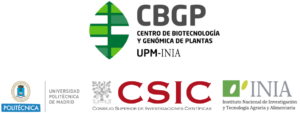Latest News & Papers
Research Lines
We investigate the ecological and functional role of low-abundance microorganisms across different habitats.
We study soil, rhizosphere, and phyllosphere microbiota in various crops in order to model plant-microbe interactions and stress resistance.
We use phylogenomics to study microbial biodiversity and ecological patterns at a planetary scale.
We develop tools, methods, and databases that facilitate large-scale functional and evolutionary comparisons among genes, genomes, and metagenomes.
Our tools and resources
Where to find us
